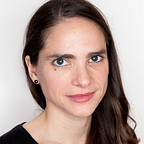Book Sneak Peek — Dreams, Goals and Optimization Problems
I promised updates on my book and here I am!
In a previous article, I started putting into words the concept of seeing our lives as an optimization model, full of opportunities to be more productive and accomplished.
The piece I’m sharing today is from a section of the book where I go into detail about this topic, how dreams and goals are defined in my personal vocabulary, and their strong connection to approaching life and its challenges as an optimization problem.
Thanks for reading, and let me know what you think!
We tend to get carried away by the daily motions, such that it almost feels unnatural to stop and take a step back and determine what we want and can optimize. So when we set ourselves to optimise something it’s fundamental to have a clear, tangible goal, which we can easily put into words and, most importantly, one that we can quantify.
In my personal vocabulary, there’s a clear separation between goals and dreams. Dreams are the non-tangile aspirations, something that most likely is disconnected from reality but, it moves our internal compass. Dreams defy and break all mental and physical barriers, they allow us to imagine and create a picture of what we want or what we aspire to do or be. They are an essential part of us, because I believe we can have one side of us that is rational and tied to reality, and another that forces us to be free, that forces us to see the unseen, to really put our imagination to work.
Once we have a clear dream or aspiration, it’s time to create goals. And it’s usually here that we all bend and break. We throw the towel and call it a day! Goals are real, they are quantifiable and force us to constantly check-in for progress. The most transformative goals are also harder to achieve. That’s why we sometimes pretend we forgot that we set them in the first place. It’s always the unsexy part of hard work that throws us off.
One of the goals I’ve been working to optimize towards, is getting to the point where running is completely integrated in my life. Getting to the point where running everyday comes naturally, and I don’t have to constantly force or motivate myself to do so. To the point where I don’t have to remind myself that I can do it, I’ve run this far at every mile. There are definitely days when that happens, and those are the number days that I want to minimize.
Quantifying this optimisation comes with paying attention to the impact of the activity itself: how I feel in the days that I go out for a run? Do I feel exhausted during the day? Does my body ache? Do I sleep better at night? And also, paying attention to how I feel while I’m running: do I struggle to keep a consistent stride? Do I have trouble breathing or feel physical pain?
Being able to see my body adapting and evolving with a new habit is fascinating, and motivates me to continue to put energy into running. At the end of each day, I feel that I was able block some time for myself without disrupting my other daily activities and it has a positive ripple effect: I’m more focused, calm and energised.
The pros outweigh the cons, but for this effort to be net positive, the hard work has to happen. All those thoughts and excuses, all of the It’s too cold, I’m too tired, I don’t have enough time today have to be crushed into pieces. And this is the hard part.
Honestly, I don’t always succeed. But what I make an effort to do, is to remind myself of the awesome feeling I always have after running. I’m obviously tired, but I feel strong at the same time. It feels that it’s worth it. That’s what I try to remind myself every time I look out the window and start thinking about excuses.
Optimising our lives is also a personalization exercise. You’re the one in control and you’re crafting experiences to better fit your needs. We all have different tastes, interests, aspirations, goals and should create our optimisation model as it best suits our lives.
Not everyone has to wake up at 5AM and read for 2h hours before starting their day. Nor they have to go to the gym, meditate, go for a walk in the park.
Starting the day earlier is an obvious head start but, in the end, what you decide to do with it has to be ultimately aligned with your needs and your natural rhythm.
I prefer to workout at the end of the day, and read and think about projects in the morning. My brain is wide awake but, apparently my body slowly catches up. Whenever I workout in the morning it feels like a more extraneous struggle than when I workout at night. I also tried to go to a regular gym. Turns out I prefer to run. It takes experimentation. Then consistency, then optimization.
When you first start something, it’s usually not optimal. Familiarity makes room for optimization.
